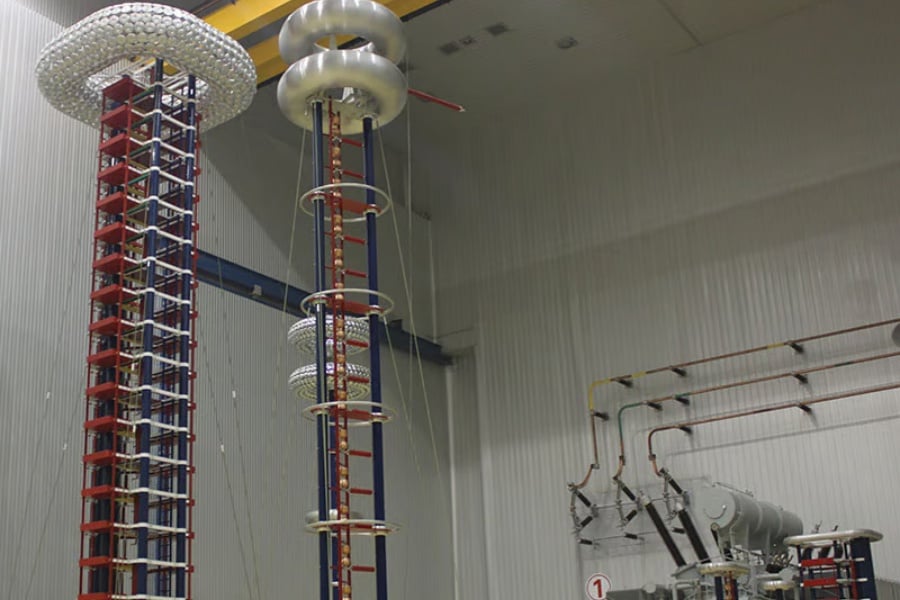The Basics of Impulse Voltage Generators
An impulse voltage generator is a device that produces high voltage, short duration pulses of electricity. It is generally used for testing the electrical insulation of equipment, such as transformers, cables, and motors. The generator produces high voltage pulses that simulate surges and transients in electrical systems.
How an Impulse Voltage Generator Works
The generator works by storing energy in a capacitor bank and then discharging it through a voltage transformer and a spark gap. The resulting high voltage pulse can reach up to several million volts, depending on the design of the generator. The pulse duration can range from a few nanoseconds to hundreds of microseconds.
Types of Impulse Voltage Generators
There are several types of impulse voltage generators, including sphere gap generators, Marx generators, and impulse current generators. Each type of generator has its own advantages and disadvantages, depending on the application.
Uses of Impulse Voltage Generators
Impulse voltage generators are commonly used to test the insulation strength of electrical equipment. They can also be used for research and development purposes, such as studying the behavior of electrical breakdown in insulating materials.
Safety Considerations for Impulse Voltage Generators
Impulse voltage generators can be dangerous if not handled properly. They produce high voltage and high energy pulses that can cause serious injury or damage if not properly contained. It is important to follow all safety guidelines and procedures when using an impulse voltage generator.
Factors to Consider When Choosing an Impulse Voltage Generator
When choosing an impulse voltage generator, there are several factors to consider, including the voltage range, pulse duration, and repetition rate. It is important to choose a generator that meets the specific testing requirements for the equipment being tested.
Advantages of Using an Impulse Voltage Generator
Impulse voltage generators offer several advantages over other types of testing equipment, including the ability to produce high voltage pulses with short duration. This makes them ideal for testing the insulation strength of electrical equipment, as well as for research and development purposes.
Limitations of Impulse Voltage Generators
Impulse voltage generators also have some limitations, including the fact that they are expensive and require specialized training to operate safely. They are also limited in their ability to simulate certain types of electrical transients.
Future Developments in Impulse Voltage Generators
As technology advances, it is likely that impulse voltage generators will continue to improve in terms of performance and functionality. Researchers are exploring new materials and designs that could lead to more efficient and effective generators.
Conclusion
Impulse voltage generators are an important tool for testing the electrical insulation of equipment and for conducting research into electrical breakdown. They offer several advantages over other types of testing equipment, but also have some limitations. It is important to choose the right generator for the specific testing requirements and to follow all safety procedures when using the device.
Quote Inquiry
Contact us!

